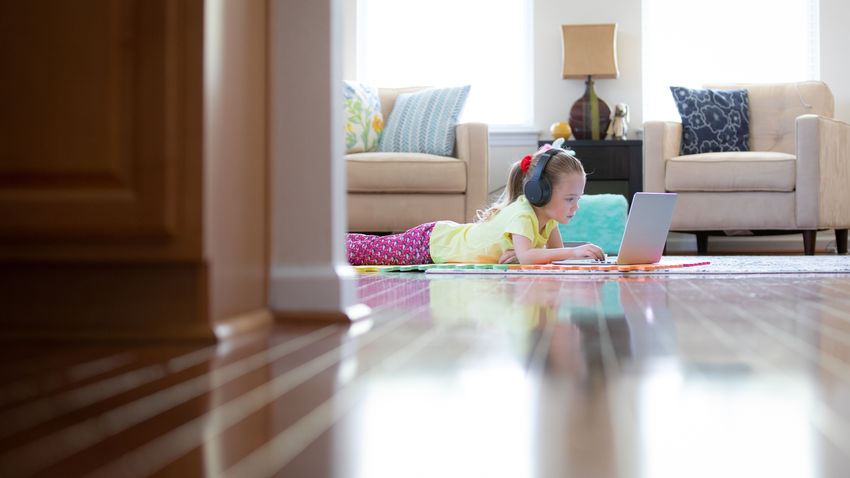
April is child abuse prevention month, and there had never been a more important time to raise awareness of this important issue. During stable economic and emotional times, child maltreatment is prevalent in our country. Nearly 700,000 maltreatment reports are made to Child Protective Services annually, and a third of children have at least one maltreatment report by their 18th birthday. Still more are likely to experience abuse and neglect that is never discovered by Child Protective Services. Imagine then the risks of child maltreatment now, with the increased stress and burden that COVID-19 has placed on families.
At least twenty-two million people nationwide, many undoubtedly parents, have lost their jobs so far due to the pandemic. Essential employees are operating under stress and with usual school and childcare arrangements upended. Other parents work from home, finding themselves stretched thin as they juggle roles of employee, full-time childcare provider, and teacher. Children too, are stressed. Many millions of children had school cancelled due to the pandemic, leaving them without familiar routines, social lives, expected activities, and resources. All of this is occurring in an isolated climate steeped with worry.
The COVID-19 crisis creates risk for child maltreatment, including abuse (physical, sexual, and emotional violence) and neglect (not providing for basic needs and/or adequate supervision to ensure safety). Unemployment, lack of childcare, and illness strain families and contribute to neglect in particular -- the most common, deadly form of maltreatment. Neglect can leave children vulnerable to sexual abuse, including online sexual victimization. Accumulating stresses wear down on parents’ ability to control their emotions and behavior. Parents may struggle to manage anxiety and children’s emotional reactions to the crisis. These conditions can trigger maltreatment—behaviors that can lead to emotional, physical or social harm of children.
Families already contending with poverty, health problems, and trauma are the most vulnerable. However, the COVID-19 crisis presents widespread risk for maltreatment even in previously safe, stable families. What’s particularly worrisome is that the harm to children will be hidden. The lack of a watchful eye typically provided by mandated reporters, such as teachers, has been lost. This is already purported to explain recent decreases in maltreatment reports in Philadelphia.
How can we collectively prevent child abuse and neglect in the wake of the COVID-19 pandemic?
Check in and connect
If you have friends, family, or coworkers caring for children, see how they are doing and offer help and support (maintaining appropriate physical distance). To report suspected child abuse or neglect, call Pennsylvania's Childline.
Manage stress
Staying calm is hard work for over-stretched adults even in the best of times. Now, more than ever, parents need to take proactive steps to recognize and cope with stress. Sleep, eat right, breath, stretch, walk, pray, and/or meditate. Listen to music, find humor, or do something that you enjoy. Be kind to yourself (no one is prepared for this). Modify your expectations of yourself and your children. Children will benefit from routines, indoor/outdoor energy-busting activities, and flexibility in academic expectations. Remember, this is temporary and you are not alone. Take advantage of available resources for self care, stress management, positive parenting, and considerations for children of different ages.
Get help
Are you becoming dysregulated (snapping with your kids or worse), fatigued, or checked out (ignoring your children or not monitoring their internet activities or whereabouts)? If so, Childhelp is a 24/7/365 hotline staffed by professional counselors that offers anonymous parent support. SAMHSA's National Helpline and behavioral health treatment services locator can assist in finding counseling. Alcoholics Anonymous offers online meetings and supports. Additional supports are available here.
Be prepared
Compile an emergency plan of what to do if someone in your family becomes seriously ill. Make sure doctors’, emergency family and friend contacts’, and other emergency numbers such as SAMHSA’s disaster distress helpline are readily available, as well as pertinent information about children’s medications. Keep a reasonable supply of food and other essential items on hand.
Never before has the village been more important. Let’s work together to keep kids safe in Philadelphia!
Julia M. Kobulsky is an assistant professor in the School of Social Work. Amy Lynch is an associate professor in the occupational therapy.
